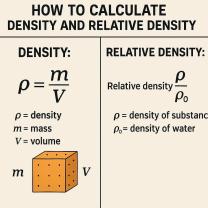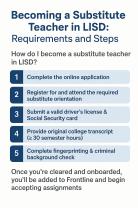What courses are needed to be a counselor?
The specific courses needed to become a counselor can vary depending on the type of counseling you are interested in pursuing (e.g., mental health counseling, school counseling, career counseling) and the level of education you aim to achieve (e.g., bachelor's, master's, or doctoral degree). Here is a general overview of the essential courses typically required for a career in counseling:
Introduction to Psychology:
- This foundational course provides an overview of key concepts and theories in psychology, introducing students to the study of human behavior and mental processes.
Developmental Psychology:
- Courses in developmental psychology focus on the psychological development of individuals across the lifespan. Understanding human development is crucial for counseling professionals working with clients of different ages.
Abnormal Psychology:
- Abnormal psychology courses explore psychological disorders, their causes, symptoms, and treatment approaches. This knowledge is important for counselors working with individuals dealing with mental health challenges.
Counseling Theories:
- Courses in counseling theories introduce students to various theoretical approaches used in counseling practice. Common theories include psychodynamic, humanistic, cognitive-behavioral, and systemic approaches.
Ethics in Counseling:
- Ethics courses cover the ethical principles and standards that guide professional counseling practice. Topics may include confidentiality, informed consent, and the responsibilities of counselors.
Counseling Techniques:
- Courses in counseling techniques provide hands-on training in the practical skills and interventions used in counseling. This includes active listening, empathy, communication skills, and therapeutic interventions.
Group Counseling:
- Group counseling courses focus on the dynamics and techniques involved in counseling individuals within a group setting. Group counseling is a common practice in various counseling specialties.
Cultural Competence and Diversity:
- Cultural competence courses address the importance of understanding and respecting diverse cultural backgrounds, experiences, and identities. This is crucial for counselors working with a diverse clientele.
Assessment and Testing:
- Courses in assessment and testing teach counselors how to assess clients' needs, diagnose issues, and select appropriate assessment tools. This includes understanding psychological assessments and tests.
Research Methods in Counseling:
- Research methods courses provide an understanding of research design, data collection, and statistical analysis. This knowledge is valuable for counselors engaging in evidence-based practice and conducting research.
Career Counseling:
- Career counseling courses focus on helping individuals make informed decisions about their careers. This includes understanding career development theories and practical strategies for assisting clients with career planning.
Supervised Practicum and Internship:
- Practicum and internship experiences are essential components of counselor education. These supervised hands-on experiences provide opportunities for students to apply their knowledge and skills in real-world counseling settings.
Legal and Professional Issues in Counseling:
- Courses in legal and professional issues cover the legal and ethical considerations that impact counseling practice, including licensure requirements, confidentiality laws, and professional standards.
Keep in mind that the specific courses and requirements can vary between counseling programs and institutions. If you have a specific counseling career or specialization in mind, it's advisable to review the curriculum of the counseling program you are interested in to ensure it aligns with your career goals. Additionally, different states may have specific licensure requirements for counselors, so be sure to check the licensing regulations in the location where you plan to practice.
Essential Courses for Aspiring Counselors:
Core Psychology Courses:
- General Psychology: Introduces fundamental psychological concepts and theories.
- Abnormal Psychology: Explores various mental health disorders and their diagnosis.
- Developmental Psychology: Examines human development across the lifespan.
- Social Psychology: Investigates the influence of social environments on individuals and groups.
- Personality Psychology: Delves into different personality theories and their implications for counseling.
Counseling Skills and Techniques:
- Introduction to Counseling: Provides foundational knowledge of counseling models, theories, and ethics.
- Counseling Techniques: Equips students with practical skills for interviewing, active listening, and therapeutic communication.
- Crisis Intervention and Trauma Counseling: Prepares students to address clients experiencing acute distress and trauma.
- Multicultural Counseling: Focuses on developing cultural awareness and competence for effective work with diverse populations.
Research and Ethics:
- Research Methods: Teaches students how to conduct research, analyze data, and apply findings to counseling practice.
- Ethics in Counseling: Emphasizes ethical considerations, legal requirements, and professional standards in counseling practice.
Electives:
- Addiction Counseling, Career Counseling, Marriage and Family Counseling, Substance Abuse Counseling, Play Therapy, Child and Adolescent Counseling
Academic Requirements to Pursue a Career in Counseling:
- Undergraduate Degree: A bachelor's degree in psychology, social work, or a related field is typically required.
- Master's Degree: Completing a Master of Arts (MA) or Master of Science (MS) in Counseling is necessary for licensure in most states. Master's programs typically last 2-3 years and delve deeper into counseling theories, skills, and research.
- License and Certification: Each state has specific licensure requirements for practicing counselors. This usually involves passing a national exam and meeting state-specific supervised clinical experience hours. Additional certifications may be available for specific counseling areas.
Specializations and Electives Beneficial for Counselor Training:
Specializations: Many graduate programs offer specialization tracks in areas like clinical mental health counseling, school counseling, rehabilitation counseling, or marriage and family therapy. Choosing a specialization can tailor your training to your specific interests and career goals.
Electives: Explore electives that align with your personal interests and potential future client populations. These could include:
- Family Counseling
- Group Counseling
- Career Development
- Art Therapy
- Music Therapy
- Gerontology
- Mindfulness and Meditation
Research Experiences: Participating in research projects or internships can enhance your skills, broaden your knowledge, and build valuable connections in the field.
It's important to research specific program requirements and licensure regulations in your state. Guidance counselors, professors, and professionals in the field can offer valuable insights and help you create an academic path tailored to your aspirations.
Remember, becoming a counselor involves ongoing learning and professional development. Staying current with new research, attending conferences, and engaging in peer supervision can help you refine your skills and provide the best possible service to your clients.
I hope this information helps you navigate the exciting journey towards a fulfilling career in counseling! Feel free to ask any further questions you may have.












